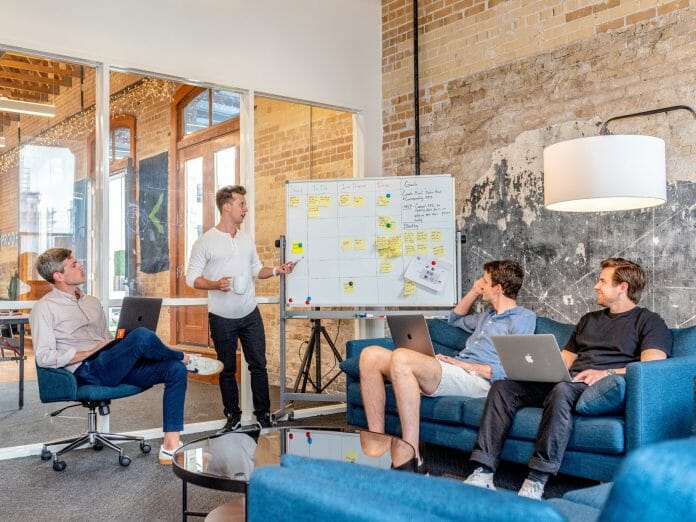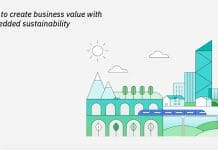By Alvin Yuan, Chief Executive Officer of HealthMetrics
One of the most apparent changes caused by the Covid-19 crisis is the heightened necessity of digital transformation for business survival. Achieving this requires the right talents to spearhead various implementation processes.
To ensure heightened productivity, employers are revisiting their talent management processes and rewards strategies to match the current needs of their workforce, which have no doubt been affected by Covid-19.
In line with this initiative, HealthMetrics, an employee health benefits and wellness management platform, aims to lead the charge in creating high-performing ecosystems at the enterprise level. To set a precedent, the company has taken the first steps in redesigning its employee benefits program to support its team in meeting the demands of Covid-19.
“Though the pandemic has caused crises on many levels, we have also noticed a silver lining to the situation- an accelerated adoption of digital processes and tools in the workplace. More than that, teamwork and constant communications are practices which have become more important than ever before. We are proud to take this first step in empowering our team to be more motivated and productive and we hope to be able to help companies nationwide do the same for their team,” said Chief Executive Officer of HealthMetrics, Alvin Yuan.
To illustrate its internal reimagined rewards strategies, the platform began with implementing a company-wide bonus and salary increment for their employees. The reason behind this is because the company believes in the importance of rewarding their employees based on performance to increase employee satisfaction while encouraging them to work harder. The key takeaway from this is that employees feel appreciated when the company values their hard work.
Transparency Through Multiple Types of Sharing Sessions
More than that, HealthMetrics stresses the importance of clear and transparent communication within their company. This includes ensuring that all employees feel heard and are given the chance to voice their opinions honestly. There are many sharing methods which can be used to increase social interaction in the workplace.
One of the most effective sharing methods used within the team are brown bag sessions- an open-discussion between employees to talk, discuss or learn about any topic. On the other hand, life hack sessions, otherwise known as technical sharing sessions, are also useful to ensure that employees are constantly learning new things in the workplace.
Whether it is a session “how to use a camera” or “how to reprogram a laptop”, different life hack lessons will prove useful to each member of the team at some point. More than that, HealthMetrics reports that these sessions have been proven to peak new interests in employees, creating technical discussions between the particular group in the process.
Not forgetting new employees, HealthMetrics has also reimagined their onboarding sessions, organising a knowledge-based introductory session and assigning a host to new team members to act as a bridge between the existing team while helping them acclimatize. The main reason that platform focuses on this knowledge sharing session is to create transparency and seamless communication, encouraging new and existing employees to express their individualistic ideas that might contribute to future success.
Now that the country has entered the Recovery Movement Control Order (RMCO), the company has also begun hosting recreational activities such as weekend group hikes, all the while practicing proper safety procedures. As these sharing and group sessions are comprehensive, talents across all levels are safeguarded, emotionally, mentally and physically.
Practicing Flexible Work Hours, Not Just Work from Home Options
Before the MCO began, HealthMetrics had already conducted an internal work from home (WFH) trial for team members to experience the physical and mental conditions of working from home. The trial was a success and this made it easier for the team to transition into fully working from home when the country went into lockdown. Now, HealthMetrics is advocating for flexible work hours instead of merely work from home options.
Despite offices nationwide having reopened, HealthMetrics has implemented a company-wide flexible work hours policy where employees are able to choose their work hours depending on comfort level, productivity and priorities. Because of this, employees were able to plan their daily schedules individually, with some preferring to spend personal time with loved ones during the day and others taking more short breaks compared to their colleagues.
This, along with insightful sharing sessions and overall salary increments, resulted in departmental productivity rates increasing as high as 50 percent, along with a significant boost in overall satisfaction and happiness.
More than that, an internal survey conducted by the company, 30 percent of their employees admire the fact that they do not have to commute and they have the privilege of picking their own environment to work at. Most importantly, 26 percent of their employees said it was cost-saving as they did not have to spend for lunch and travelling.
Overall, the employees also showed an improvement in personal behavior, engagement rate and communication among colleagues and team leads. This is in part, because HealthMetics encourages more inter-team interaction such as online activity though Microsoft Teams and video calls which enables employees to communicate more in open discussion group chats.
These interactions benefitted individual personal behavior because employees were able to improve on their time management and self-discipline.
An Improved Performance Measurement System
In measuring and tracking performance, HealthMetrics follows an Objective Key Results (OKR) system which aims to inspire team members to take ownership of their work. Every department in the company has different OKRs and the reason behind this is to provide clear guidance and set company goals. We have implemented the OKR system for two years and in this time, team leads have noticed the company’s objectives becoming clearer as each employee was on the same page, no matter the employee’s position.
Ultimately, Malaysians are still facing a period of volatility, uncertainty, complexity and ambiguity, better known as VUCA. Companies should be made aware that it is necessary to learn and adapt from lessons of Covid-19.
In our’ case, we learn that employees are the lifeblood of a company and in order to successfully implement new processes and phases, their needs and concerns should always be addressed strategically. Because of this, employers should constantly innovate to not only stay relevant but also ensure that no matter the crisis, their most valuable resource -employees- are well taken care of.









